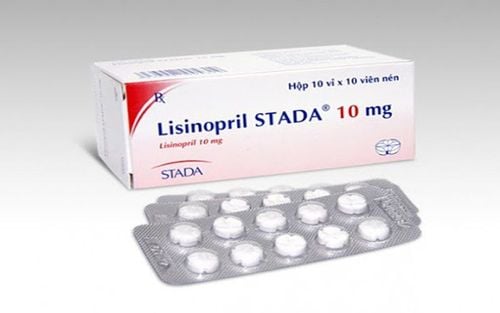This is an automatically translated article.
Tiphasidin drug is made in the form of capsules, with the main ingredient being Nefopam hydrochloride. Medications are used in the treatment of pain from a variety of causes. To ensure effective use and avoid side effects, patients need to take the medicine exactly as directed.
1. Tiphasidin drug effects
Tiphasidin drug has the main ingredient is nefopam hydrochloride. Indications for use of Tiphasidin: Treatment of acute and chronic pain of all kinds: neuralgia, myalgia, headache, spasm, menstrual pain, toothache, postoperative pain, pain due to trauma, Chronic pancreatitis, renal colic, gallstone pain, cancer pain.
Contraindications to the use of Tiphasidin:
People who are hypersensitive to the ingredients and excipients of the drug; Children under 15 years old; People with a history of seizures, glaucoma, prostate cancer.
2. How to use and dose of Tiphasidin
Usage: Orally.
Dosage: Adults take 1 tablet/time x 3-4 times/day. For severe pain, a single dose of 90mg can be used. The maximum dose should not exceed 300mg/24 hours.
Overdose: In case of emergency or overdose, the patient has dangerous manifestations, it is necessary to immediately call the emergency center or take the patient to the nearest hospital for examination and treatment.
Missed dose: If a dose of Tiphasidin is forgotten, the patient should take it as soon as possible. If it is almost time for your next dose, skip the missed dose and take your next dose at the scheduled time.
3. Side effects of the drug Tiphasidin
Some side effects patients may experience when using Tiphasidin include: Sweating, drowsiness, nausea, vomiting, dry mouth, palpitations, fast heartbeat, dizziness, blurred vision, sleep chickens, insomnia, headaches, ... When experiencing side effects of the drug, the patient should immediately notify the doctor to receive appropriate advice.4. Be careful when taking the drug Tiphasidin
Some notes users need to remember before and while using Tiphasidin:
Be careful when using the drug in the elderly, patients with liver failure, kidney failure, people who are taking anticholinergic drugs; Caution should be exercised when using the drug in people who drive or operate machinery because the drug can cause side effects such as dizziness, blurred vision; Tiphasidin should not be used in pregnant women. In case of mandatory use, the patient should consult the doctor, pharmacist before deciding; Tiphasidin should not be used during breast-feeding. If necessary, the patient should consult a doctor before using the drug.
5. Tiphasidin drug interactions
Some drug interactions of Tiphasidin include:
Anticholinergics and anticholinergics; Antispasmodics with atropine-like action; Medicines for Parkinson's disease; Tricyclic antidepressants; Antihistamines H1; Disopyramide. Before using Tiphasidin, patients should inform their doctor about any health problems they have/are experiencing, and any medications they are taking. At the same time, patients should strictly follow the doctor's instructions while taking the drug to ensure the best treatment effect and avoid the risk of complications.
Follow Vinmec International General Hospital website to get more health, nutrition and beauty information to protect the health of yourself and your loved ones in your family.
Please dial HOTLINE for more information or register for an appointment HERE. Download MyVinmec app to make appointments faster and to manage your bookings easily.













